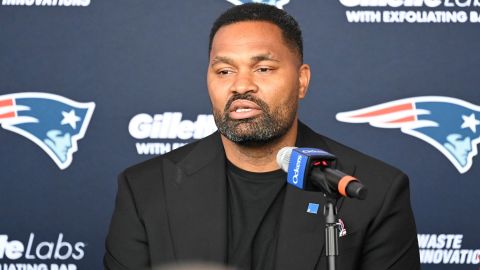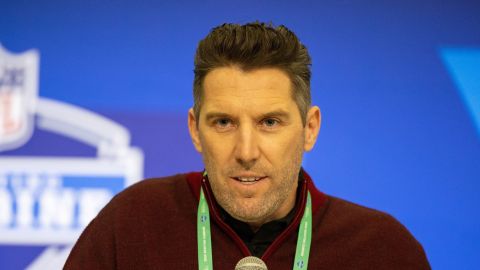Don't look now, but the Patriots are in trouble.
Awash as we are in Bruins injuries, the Celtics' teetering and the anticipation of the Red Sox' Opening Day, there are unresolved issues that need to be addressed about 30 miles down the road in Foxboro. We've become so accustomed to trusting in Bill Belichick and Robert Kraft that it's been quite a long time since the Patriots have been presented with real, tangible problems that need to be fixed before the next season kicks off.
This, however, is one of those times.
Sure, the Patriots are in need of a punter and a tight end or two — and they would do well to perhaps address the age of their running backs — but the biggest issue they face at the moment might be the lack of checks on Belichick's power. Belichick, for all his genius and football intellect, may have bitten off more than he can chew for the 2010 season.
After former defensive coordinator Dean Pees chose not to seek to renew his contract in January after four seasons in the position, Belichick and the Patriots announced that they would not fill the position. While Belichick claims that defensive coaching duties will be split among himself and his defensive coaching staff — including former Patriot Corwin Brown, linebackers coach Matt Patricia, defensive backs coach Josh Boyer and defensive line coach Pepper Johnson — it's pretty clear that the man in the hoodie will be the one calling the shots and diagramming the X's and O's.
Added to Belichick's head-coaching duties and the de facto defensive coordinator job is the fact that the Patriots played the 2009 season without an official offensive coordinator (most of the inherent duties were handled by quarterbacks coach Bill O'Brien), and so Belichick will largely be responsible for that side of the action as well.
While this may seem like a streamlined way of coaching a football team, the Patriots run the danger of developing a sort of coaching tunnel vision. Belichick, mastermind though he often is, is not immune to play-calling mistakes and has historically benefited from input from his coordinators. Even if, as Belichick has stated, coordinating duties are split among the various coaches, entering the season without a designated offensive coordinator has potentially more risks than rewards.
There has been speculation that the Patriots will officially elevate O'Brien to the offensive coordinator position, and several fans have been vocal in their support of O'Brien after a shaky start to the 2009 season. Should the Patriots make this change, it would allow Belichick to focus on the aspect of professional football in which he's made his name: defensive coaching.
Belichick, in addition to his three Super Bowl victories as head coach of the Patriots, also won two Lombardi trophies with the New York Giants in 1986 and 1990 as defensive coordinator. His defensive game plan that upset the Buffalo Bills in Super Bowl XXV is so revered that it is enshrined in Canton, Ohio, at the Pro Football Hall of Fame. Throughout his entire career, Belichick has focused on the defensive side of the field and has specialized in adjustable defenses that take away an opponent's strength and force the use of a team's lesser skills.
Masterful at taking away an aerial team's passing game or removing a running team's Pro Bowl backs from the equation, Belichick's bread and butter has always been defense.
Naming O'Brien the official offensive coordinator would remove a large amount of the offensive play-calling responsibilities from Belichick's overfilled plate, and it would also involve a great amount of trust to be placed on the shoulders of quarterback Tom Brady. However — after 10 years in the league, two Super Bowl MVPs and a league MVP to show for himself — Brady should more than meet the challenge, provided he stays healthy.
Any success the Patriots have had in the past decade has been due largely to full-scale collaboration among the different facets of the organization. While it has been understood since Belichick accepted the head-coaching job in 2000 that he would have the final say on play calling, he's been more outspoken about that responsibility in recent years. While a certain amount of autonomy is healthy for a head coach, as is understanding the decision-making hierarchy, professional sports teams benefit from a system of checks and balances in the form of coordinators and assistant coaches. Belichick might argue that "everyone's collectively getting the job done," but without the official titles to their names, various coaches run the risk of not having a clear sense of their contributions.
Ultimately, the Patriots' problems will best be fixed from the top down. The grab-bag method of coaching — where everyone has some undetermined level of input and influence — is a recipe for disaster. In delegating some of his responsibilities, Belichick will be better able to return to focusing on those things which have made him one of the most well-respected coaches in the game: football fundamentals.
One of Belichick's most notable mantras is "Do your job," in which players are expected to know their duties and perform their given tasks well at any given moment. Perhaps Belichick would do well to take a step back and internalize his own advice. If he's doing the jobs of three people, how can he focus on his own?



